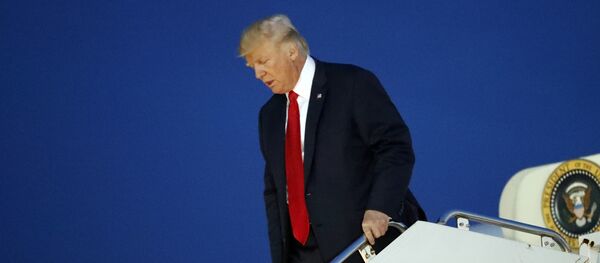Kristian Rouz – US exports declined at the quicker pace than imports in July, resulting in the US trade in goods deficit widening for that month. Nonetheless, the national debt continued decreasing throughout the first seven months of the year and into August, stemming from the decline in value of Treasury bonds and rising yields.
The trade deficit is an issue of utmost importance for the Trump administration, as evidenced by recent developments at the White House. Anonymous sources told the media that the president has demanded that customs tariffs be immediately imposed on mainland China, and the NAFTA renegotiation process points to a likely unilateral exit of the US from the bloc.
In July, the trade deficit widened by 1.8 percent to $65.1 billion, according to a report from the Commerce Department, which is slightly above expectations – MarketWatch experts had projected a July deficit at $64.6 billion.
“The readings on consumer and capital goods imports are consistent with our view of ongoing expansion in US economic activity, led by household and business spending,” Michael Gapen of Barclays Capital in New York said.
US exports dropped by 1.3 percent as shipments of motor vehicles posted a stunning 8 percent decline. Exports of the US-made consumer goods also slid, whilst exports in capital goods increased by 1.5 percent.
International exchange in services was not included in the report.
“Early on in the third-quarter data cycle, we think the trade will be a slightly positive factor for growth during the quarter,” Daniel Silver of New York-based JPMorgan Chase & Co. said. “With the July data now in hand for capital goods shipments and related trade flows, we think real equipment spending will be strong in the third quarter.”
Meanwhile, the US national debt has narrowed by $102 billion for the year, according to the US Treasury, from $19.947 trillion to $19.845 trillion, a 0.5 percent decrease. The debt-to-GDP ratio is also gradually contracting, putting additional pressure on the Congressional Republicans to approve the healthcare and tax reforms by easing their concerns about revenue neutrality.
However, as the US national debt is poised to increase in the coming quarters as the White House will finance its looming economic reforms through increased borrowing, President Trump is seeking to decisively narrow the trade deficit in order to increase the contribution of foreign trade to the growth of the GDP.






